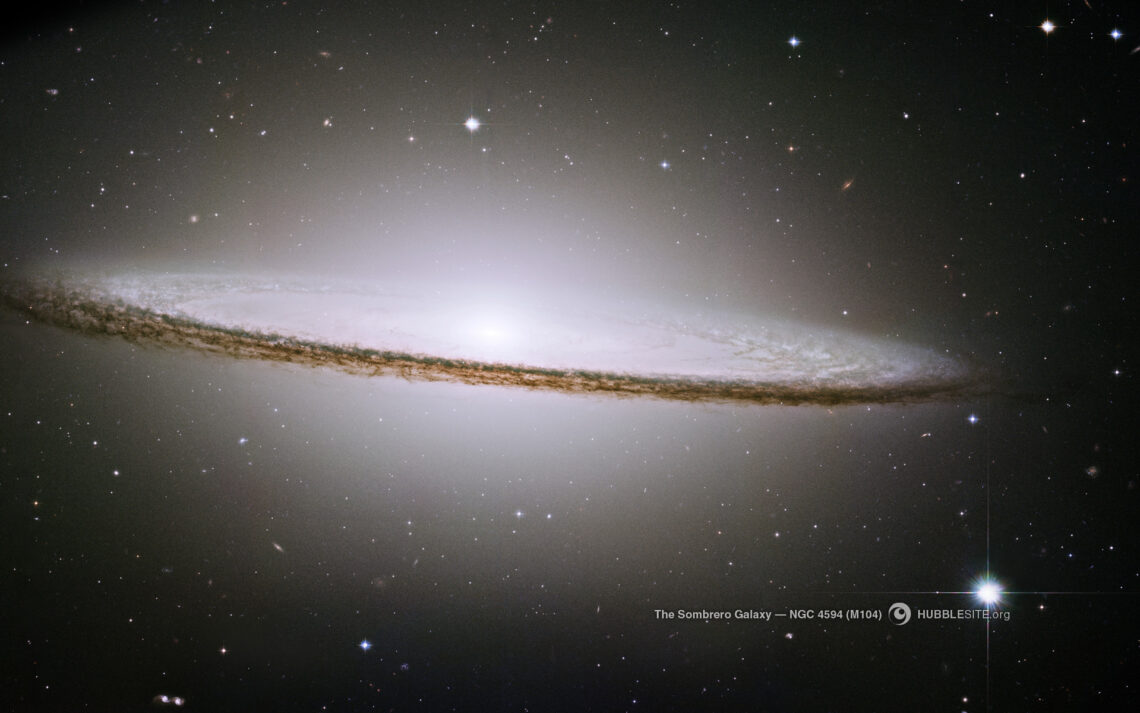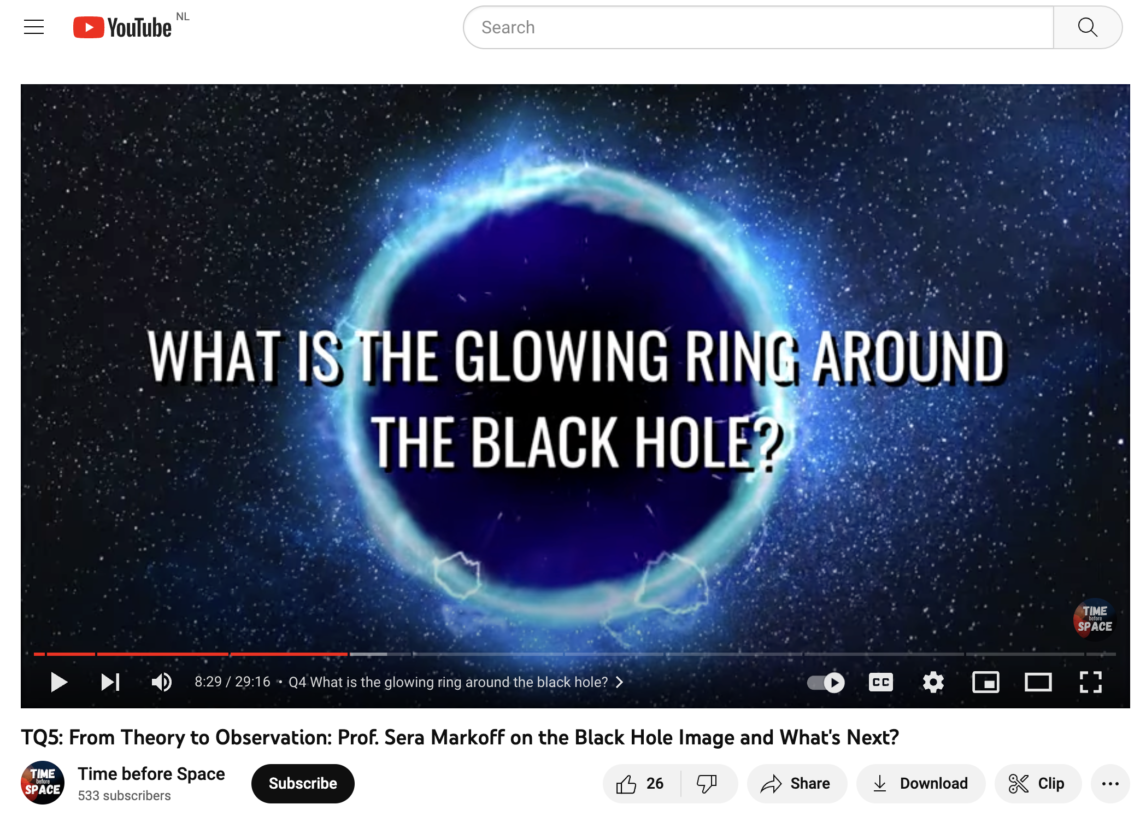Hey everyone! So, I did not physically attend the 243rd Meeting of the American Astronomical Society (AAS) held in New Orleans, Louisiana, from January 7th to 11th, 2024. However, my presence was still felt at the conference, thanks to my advisor, Sera Markoff, who presented two interactive posters on my behalf. Let me start by introducing my first poster presented at the conference. Check it out through the link: “High-resolution insights into black hole accretion dynamics and jet phenomena”. In this work, we perform a convergence study with the GPU-accelerated GRMHD (General Relativistic Magnetohydrodynamic) code H-AMR on a wider range of resolutions than has ever been previously explored. What made…
Read More >>Sparking Scientific Curiosity in Children – Part II
As discussed in Part I, I think it’s very important to teach children about science and what it’s like to be a scientist. It’s more important that we teach children invaluable skills such as being curious, critical thinking and creativity than that they secure high grades in school. In an ideal world, every child is introduced to science and is allowed to discover whether they like to do science. Unfortunately, the Dutch school system has some issues regarding this and there is still the need for initiatives like the Altair project. Let us take a look at the Dutch school system and what can be done. Before delving into this,…
Read More >>Sparking Scientific Curiosity in Children – Part I
Hello, my name is Scott, and I’m a master’s student working on modelling the emission of relativistic outflows of matter around supermassive black holes in the centre of galaxies. In this final year of my master’s, I’m working on research full-time and it has been an interesting and challenging time so far. Obviously, I’ve been busy with scientific work, but this also led me to think about the position of science in society and the role that scientists play in educating people. Scientists are concerned with developing knowledge and making this accessible to everyone such that we can help humanity in different fields. Personally, I’m convinced that educating people is…
Read More >>Reflections on Research, for scientists and non-scientists alike
My name is Ruby, and I’m a new member of Sera’s research group as a master’s student, analyzing a catalogue of low-luminosity active galactic nuclei. As a second year, I am now working on research full-time, for the first time in my academic career, and so have been considering the role that it has in shaping people when they leave the classroom. I’ve been told that it involves a lot of creativity, being able to stretch your mind outward around unrefined and unheard of problems, and I’ve been reflecting on the transition that comes from student to researcher, or more broadly, how it can affect the way you think and…
Read More >>Understanding data through other senses: Data Sonification
A lot of what we interpret from our astronomical telescopes is either through images/videos or raw data rendered understandable through physical plots in real or Fourier spaces. But what if we can render that data to cater to the other human senses? In this blog article I discuss very briefly the mechanics of data sonification as I understand it. I recently came across the Audio Universe mission (https://www.audiouniverse.org/home) which aims to collect tools in order to support a plethora of target audience ranging from scientists, outreach managers, educators, students and the general masses to represent data as sound. In addition to the research potential of sonification, what particularly caught my…
Read More >>Visualizing Black Holes
An exhibition about black holes will open next week at the Valkhof Museum in Nijmegen, where we can think about the mysteries surrounding these extreme gravity objects. Those astrophysical monsters have not only inspired scientists but also artists from all fields, especially in visual arts and music. A great example is the Black Hole Symphony where the music leads us to a sensory experience of how black holes behave. In understanding science, it is vitally important to have a graphic representation where for example we can visualize what happens to the plasma when it is near a black hole. The Event Horizon Telescope is a project that captured/photographed the shadow…
Read More >>Read this before watching Oppenheimer
Few individuals have left as profound a mark on the world as J. Robert Oppenheimer, renowned for his pivotal role in the development of the atomic bomb during World War II. Yet, Oppenheimer’s contributions extend far beyond this infamous accomplishment. Last month, I watched the premiere of Oppenheimer in the cinema and was intrigued by a scene showcasing his major, yet lesser-known, contribution to science. In 1939, Oppenheimer collaborated with his student, George Volkoff, and published a groundbreaking paper titled “On Massive Neutron Cores” which laid the foundation for our understanding of neutron stars. The Tolman–Oppenheimer–Volkoff limit establishes that if the mass of a neutron star is greater than a critical value of approximately 2 solar…
Read More >>Science Enables Globetrotting!
The last three weeks have been exciting for three members of the Jetset group, namely Prof. Sera Markoff and her two students, León Sosapanta Salas and Wanga Mulaudzi. The three first travelled to Hong Kong to attend the ‘Astrophysical Black Holes: A Rapidly Moving Field‘, which was a meeting in honour of the 2020 Shaw Prize recipient, Prof. Roger Blandford. Prof. Roger Blandford is known for his theory, the Blandford-Znajek process, which states that relativistic jets extract their energies from rotating black holes. The meeting brought together experts from all over the world to share their findings on astrophysical black holes. León and Wanga also presented their PhD works during…
Read More >>Rise of the Machines…
As a highly trained professional in a complex field with rare skills, the main question on my mind is “Will I be replaced by a box in the corner ?” To answer this question I decided to put ChatGPT-4 to the test in the common-or-garden field of high-energy astrophysics and, in the interest of fairness, have it test me in its turn ! I can report that my job may be safe(ish), for now. It understood context uncannily well and got the main things right in frightening detail but needed prodding about important areas. When reminded of an omission it acted like it knew all along and filled in the…
Read More >>Why talking about science to the public makes you a better scientist
Ok I am super tardy with my turn to do our research group’s blog, but there’s always a lot to juggle between running a group at a university, and all the other things I do as a professional scientist. However I do always make time for a significant amount of engagement with the public about science, on many different levels. For instance I am in the 7th year of running a project where a team of volunteers (mostly university students) and me go to a local elementary school in an under-served community near our campus, to give lessons throughout the year about science. I’m often asked not only how I…
Read More >>


